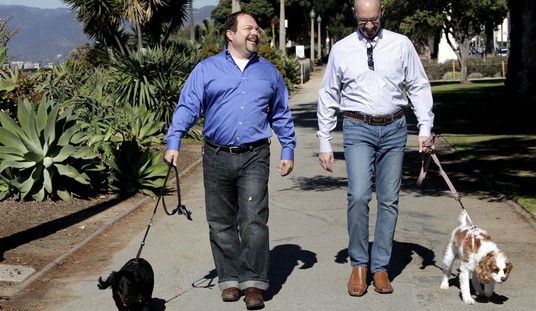The more painful exposure we have to Barack Obama -- and we're talking hyper-exposure at this point -- the more we realize how narcissistic he is. Indeed, we are treated to this overexposure precisely because of his narcissistic impulses. He can't keep himself out of the spotlight.
So it was that on the heels of his crushing personal defeat in the Massachusetts senatorial election last week, Obama's principal reaction was, "This isn't about me."

When someone says that one time or a few times, you might believe him. But when he says it repeatedly (see below), you have to conclude he is protesting too much and means just the opposite.
Given what we've learned about Obama's self-absorption, it's not a stretch to infer that when he says "it's not about me," he wants to project an air of humility while receiving personal credit for that which he denies seeking credit. What he really means is, "The causes I am working on are greater than self, but -- wink, wink -- I darn well expect you to applaud me anyway, not just for my transcendent accomplishments but also for my being humble and selfless about it."
The context of his "not about me" statement following the Massachusetts election bears this out. After the obligatory disclaimer, he added: "This isn't about politics. This is about a health care system that is breaking America's families, breaking America's businesses and breaking America's economy."
Forget the distortions for now. But notice that he is seeking plaudits for his important work, which he's willing to do even if it damages him in the polls. He also gets the added benefit here of deflecting blame for the defeat by implying the election results weren't about him.
Recommended
But make no mistake -- to borrow another Obama phrase -- health care is all about him (everything he says and does is about him); it's not about the Democratic Congress, though it's complicit. He's the one driving this train, even if not in the policy particulars.
His entire domestic and foreign policy agenda is so much about him that he insists on cramming it down our throats even though the polls overwhelmingly indicate that we Americans do not want it and, more importantly, that it is bankrupting this nation and making us less safe. That's not selflessness. It's self-indulgence and conceit to an obscene degree. He is so brainwashed in Marxist and appeasement ideologies that he continues to believe in their maxims in the face of their historical failure and of the miserable failure of his own agenda in the here and now. He is so convinced he knows better than we do what is in our best interests that he must thwart our ignorant will.
If it weren't all about Obama, why would he say, "We (meaning I) are the ones we've been waiting for"? Why would he cultivate a messianic image, replete with echo-enhanced microphones, a grandiose Greek temple backdrop at Invesco Field, and that far-off and high-above look he has mastered for his ethereal orations?
Obama's effort to present himself as otherworldly, of which the rhetorical device "it's not about me" is but a part, is not something he just contrived in the past year. It's part of a deliberate pattern he established long ago and has continued with consistency, as my research has confirmed in spades.
Consider this sampling:
--On Feb. 15, 1990, after becoming "the first black president of the influential Harvard Law Review," Obama said, "I realized my election was not about me, but it was about us, about what we could do and what we could accomplish."
--On Nov. 2, 2004, when Obama visited the campus of the University of Illinois during his campaign for U.S. senator, he said: "Ultimately, this election is not about me. ... It's about the willingness of our citizens to get engaged and get involved."
--On Dec. 11, 2006, in a speech in New Hampshire, Obama said, "It's not about me." But, according to an NPR reporter, "it really is all about him."
--On Dec. 10, 2007, Obama said, "This campaign is not about me; it is about the hundreds of volunteers ... in Rhode Island ... and the millions of people across the country who want change we can believe in."
--On Dec. 14, 2007, when asked about a New Year's resolution, Obama said he needed to keep reminding himself, "This is not about me."
--On Aug. 28, 2008, Obama said in his acceptance speech, "This election has never been about me; it's about you."
--On July 20, 2009, Obama said (exactly as he repeated following the Massachusetts election): "This isn't about me. This isn't about politics. This is about a health care system that is breaking America's families, breaking America's businesses and breaking America's economy."
Whom do you think it's about?

























Join the conversation as a VIP Member